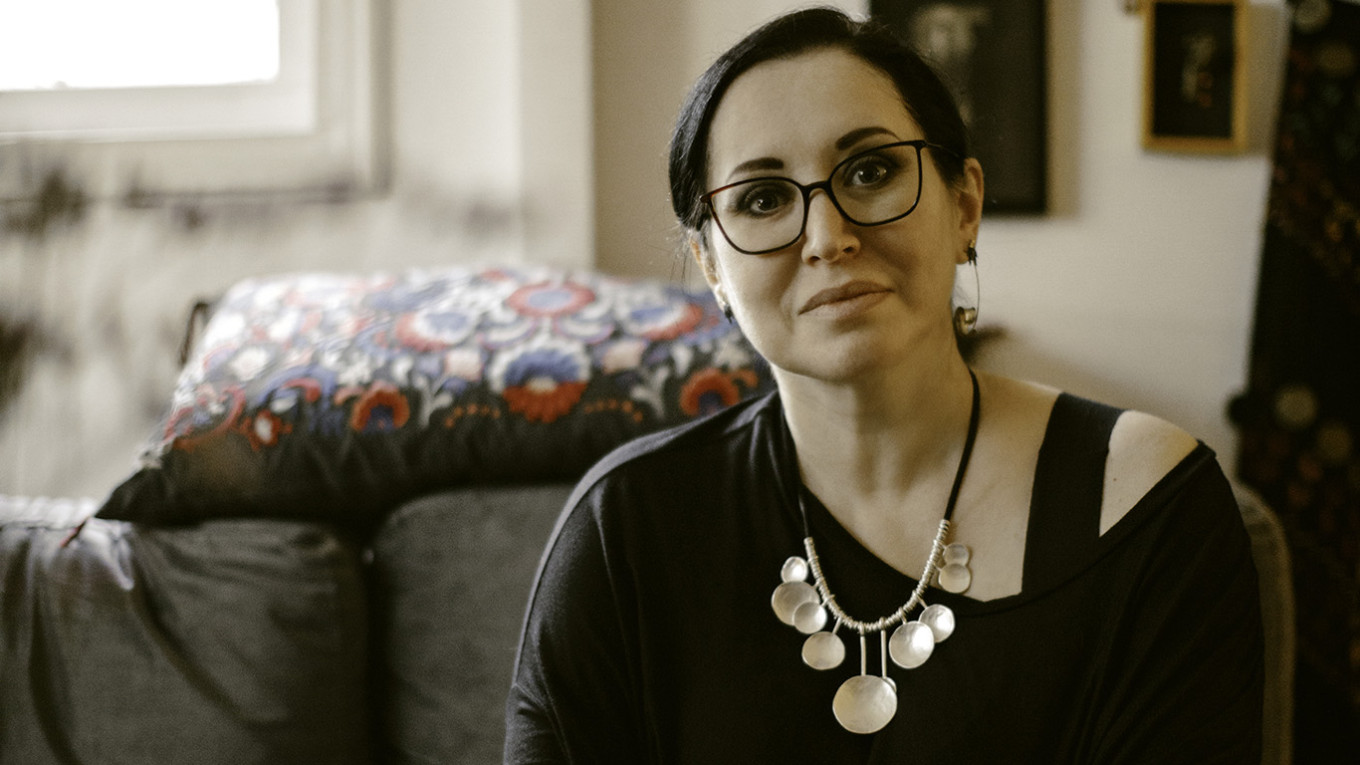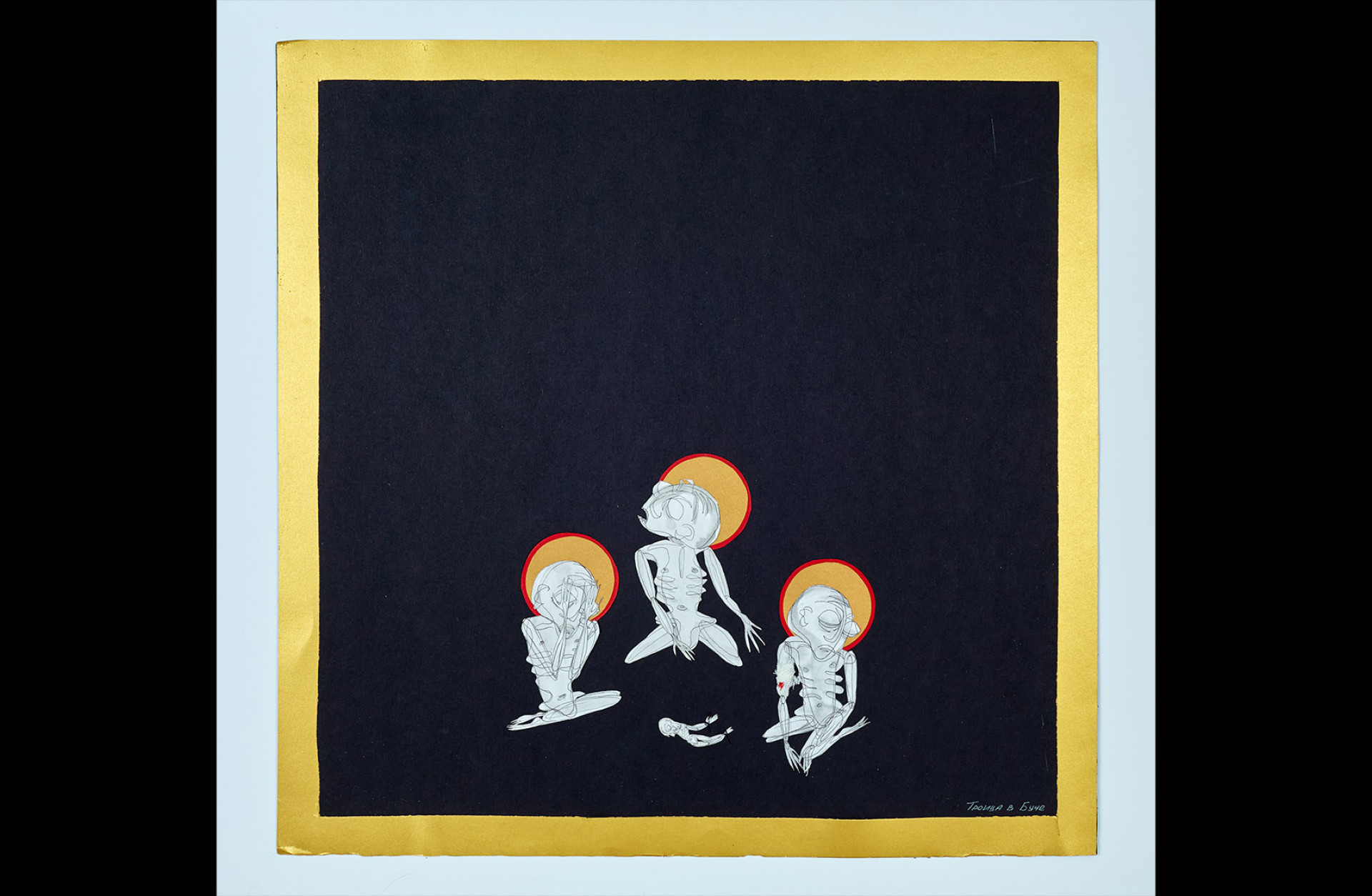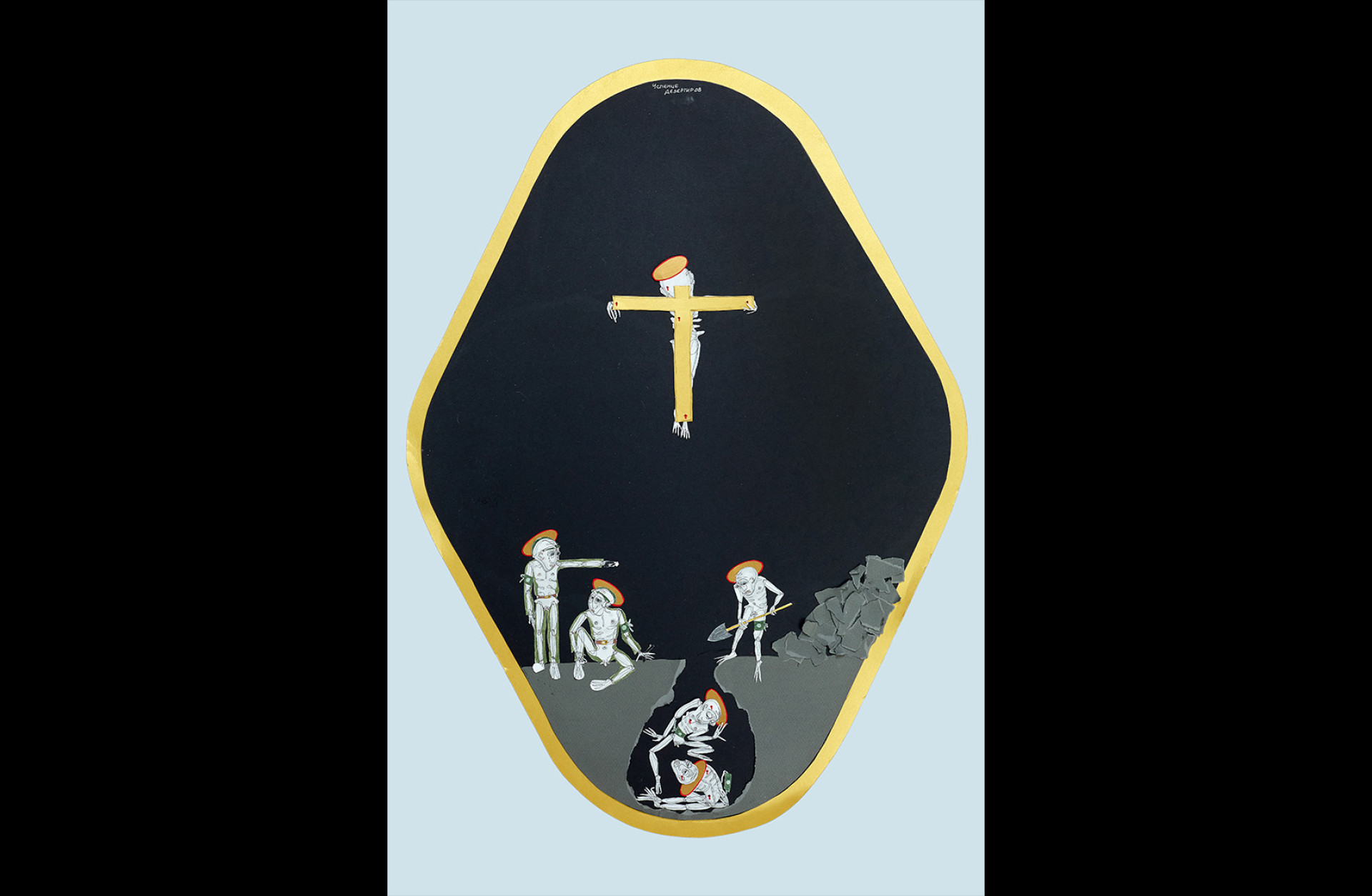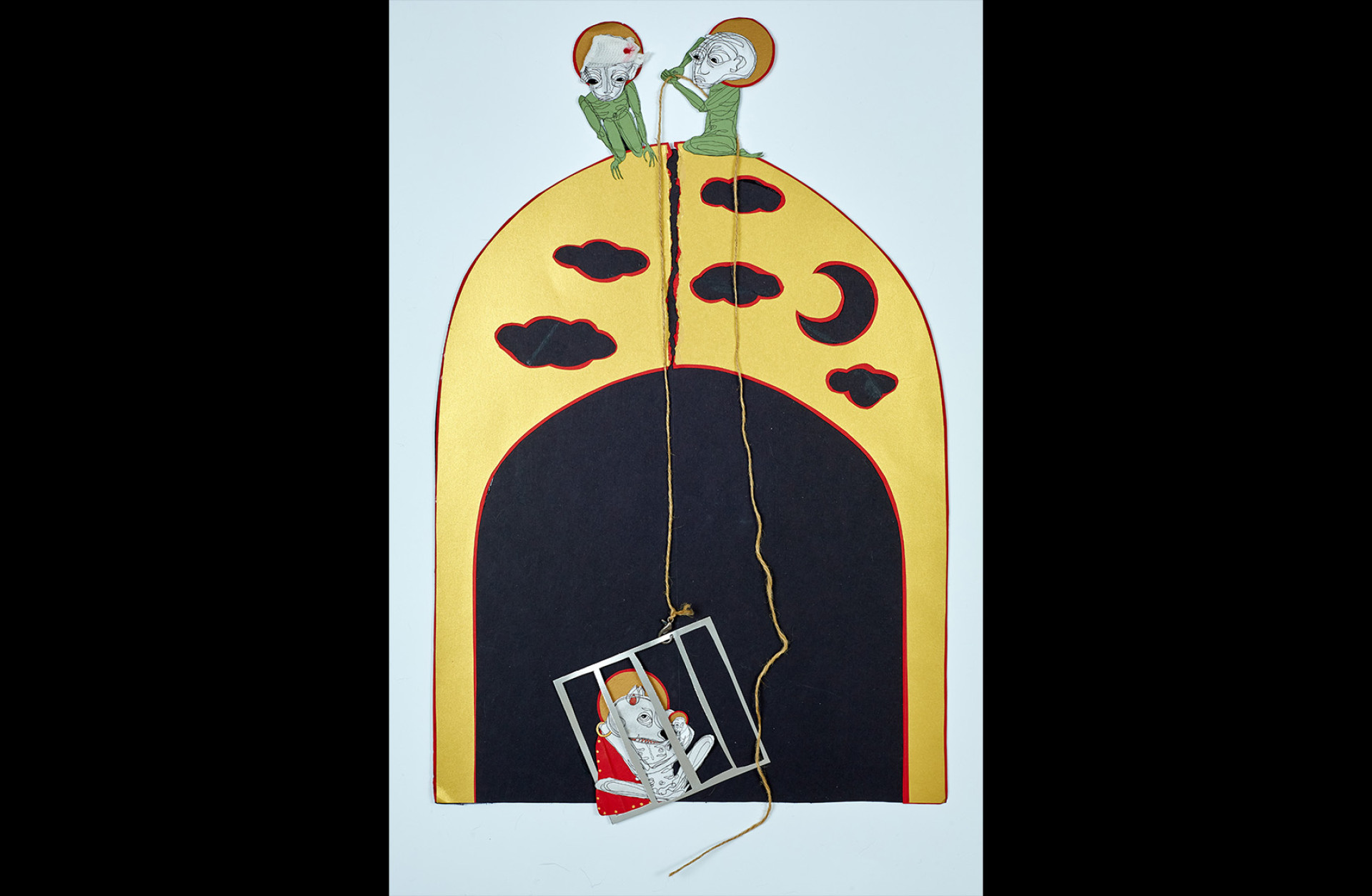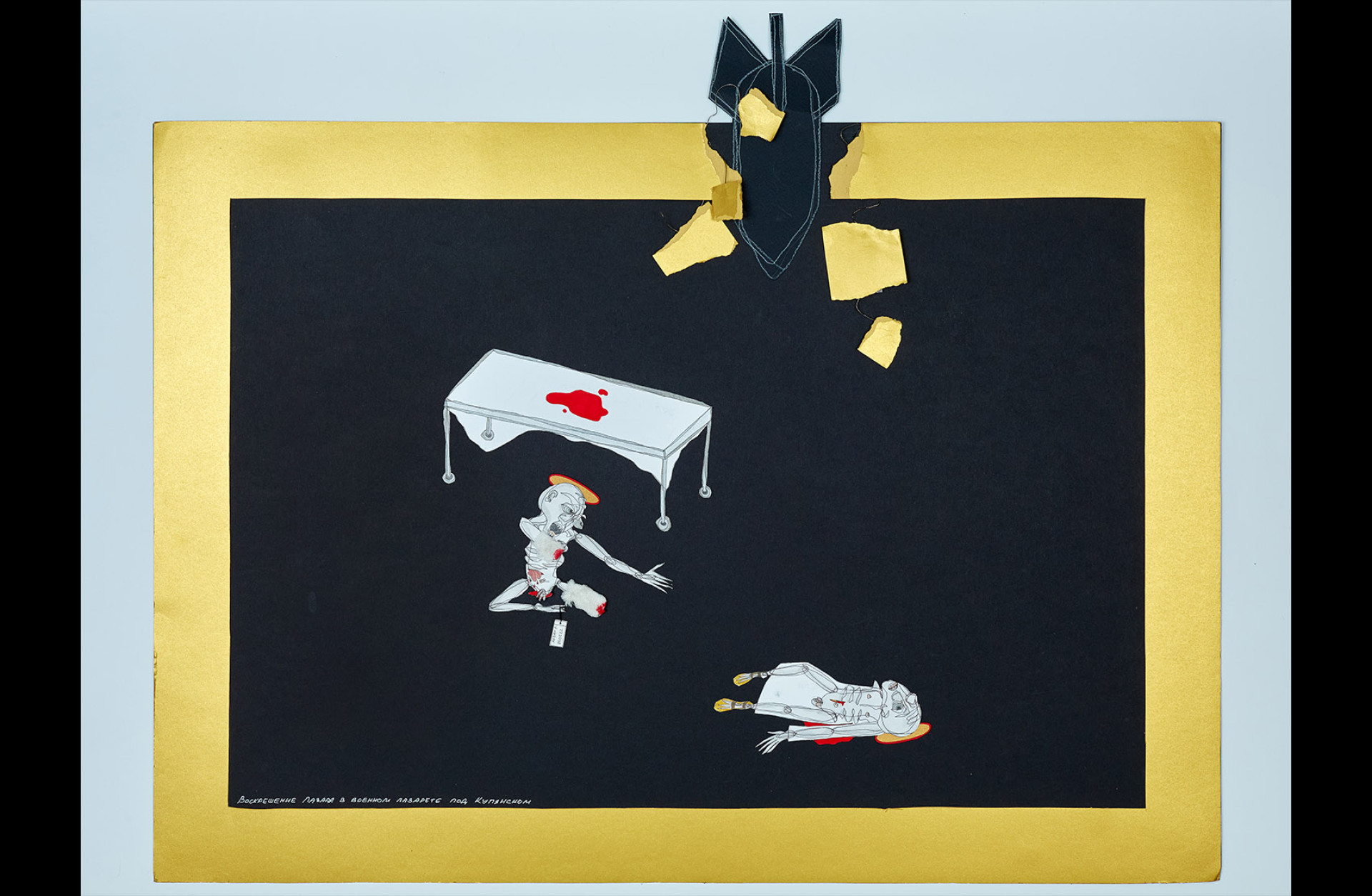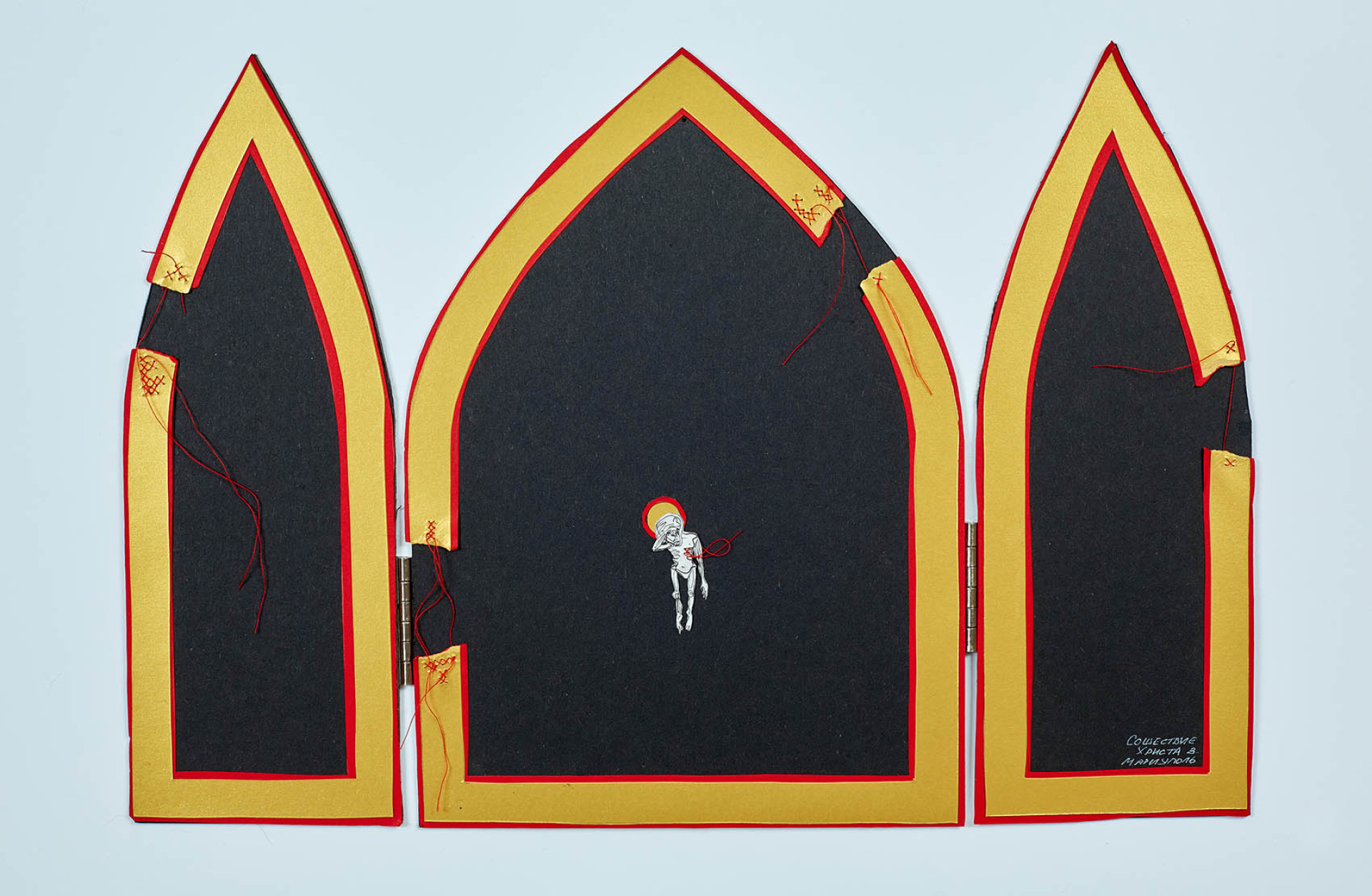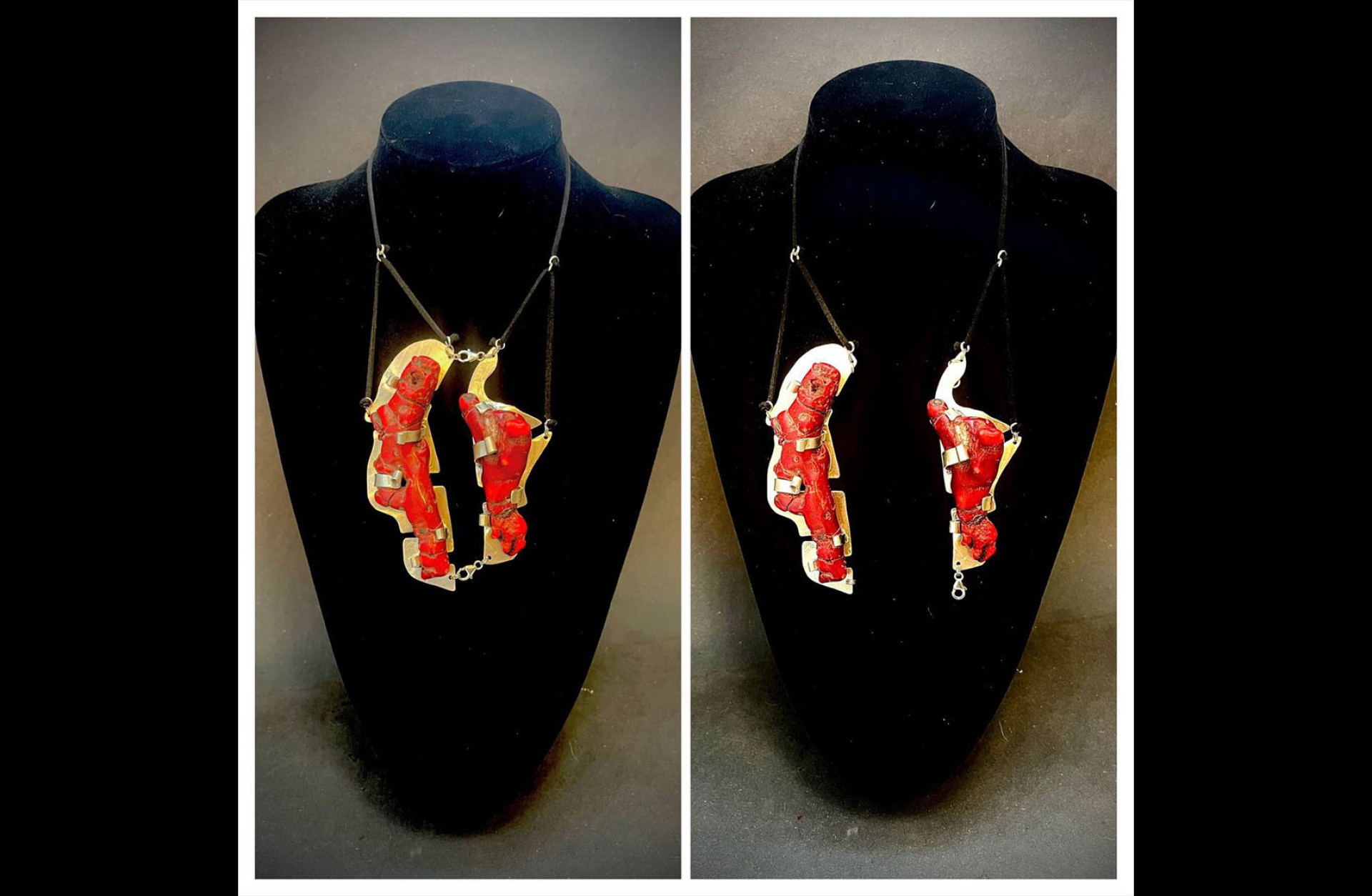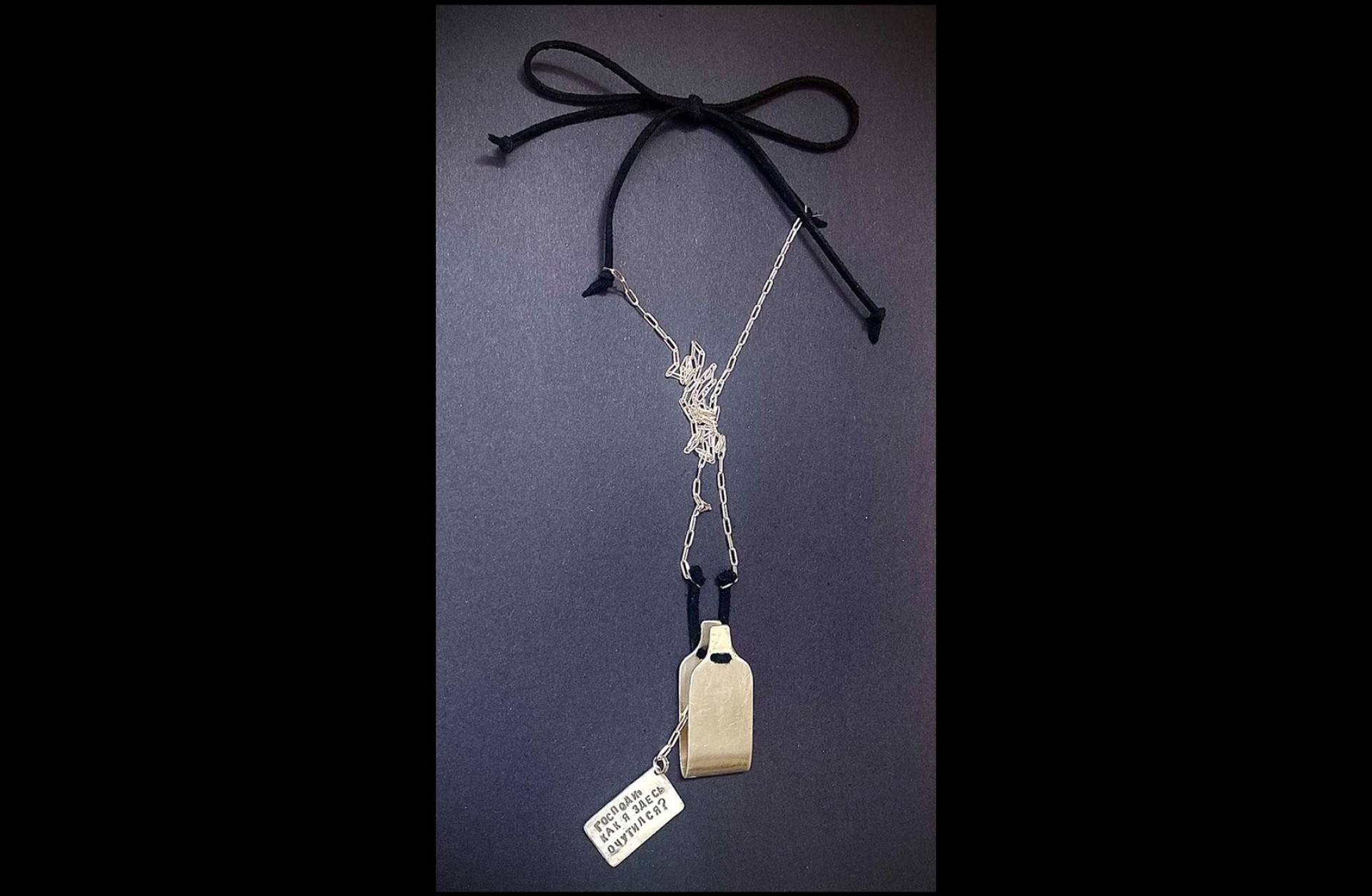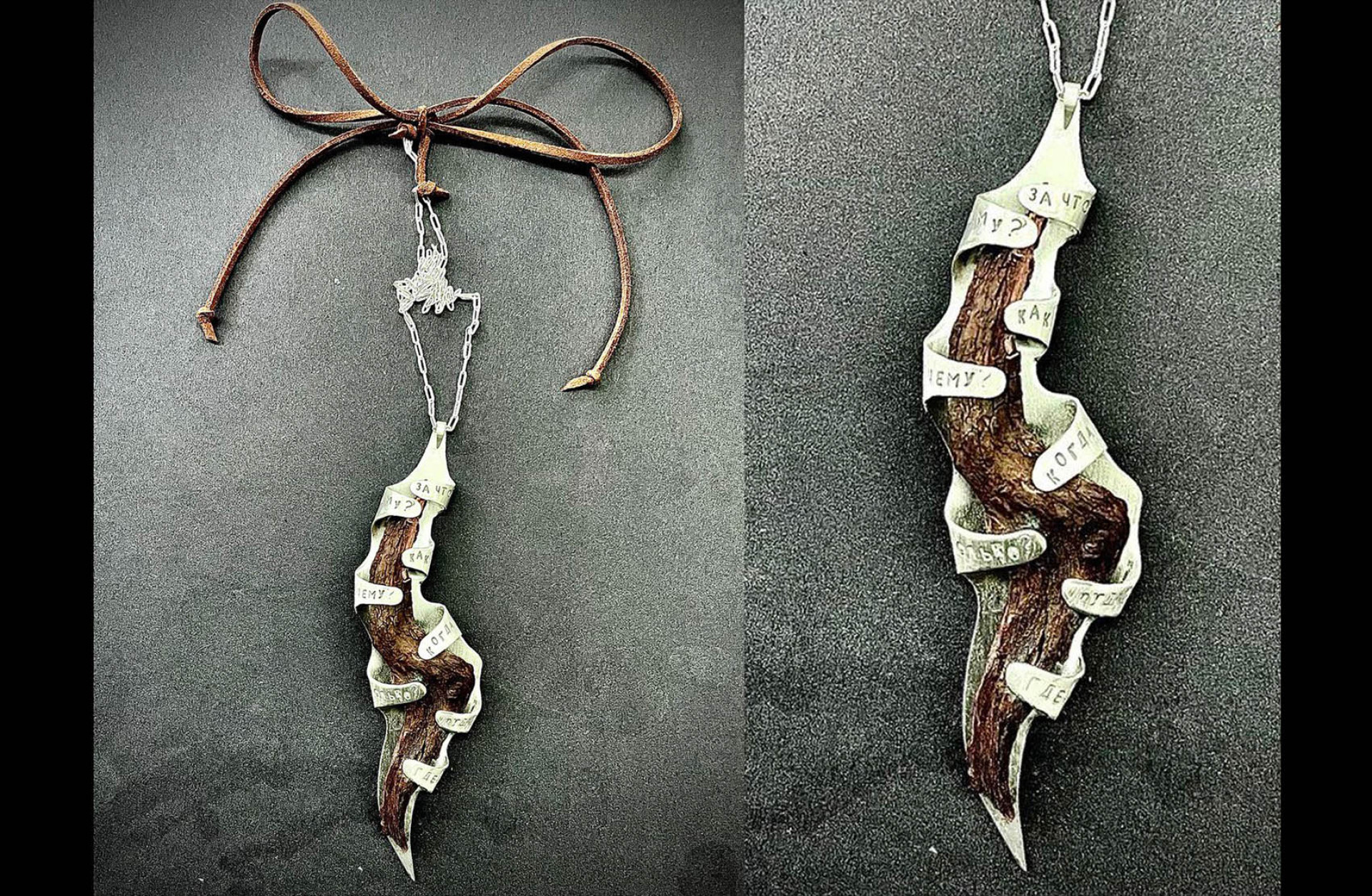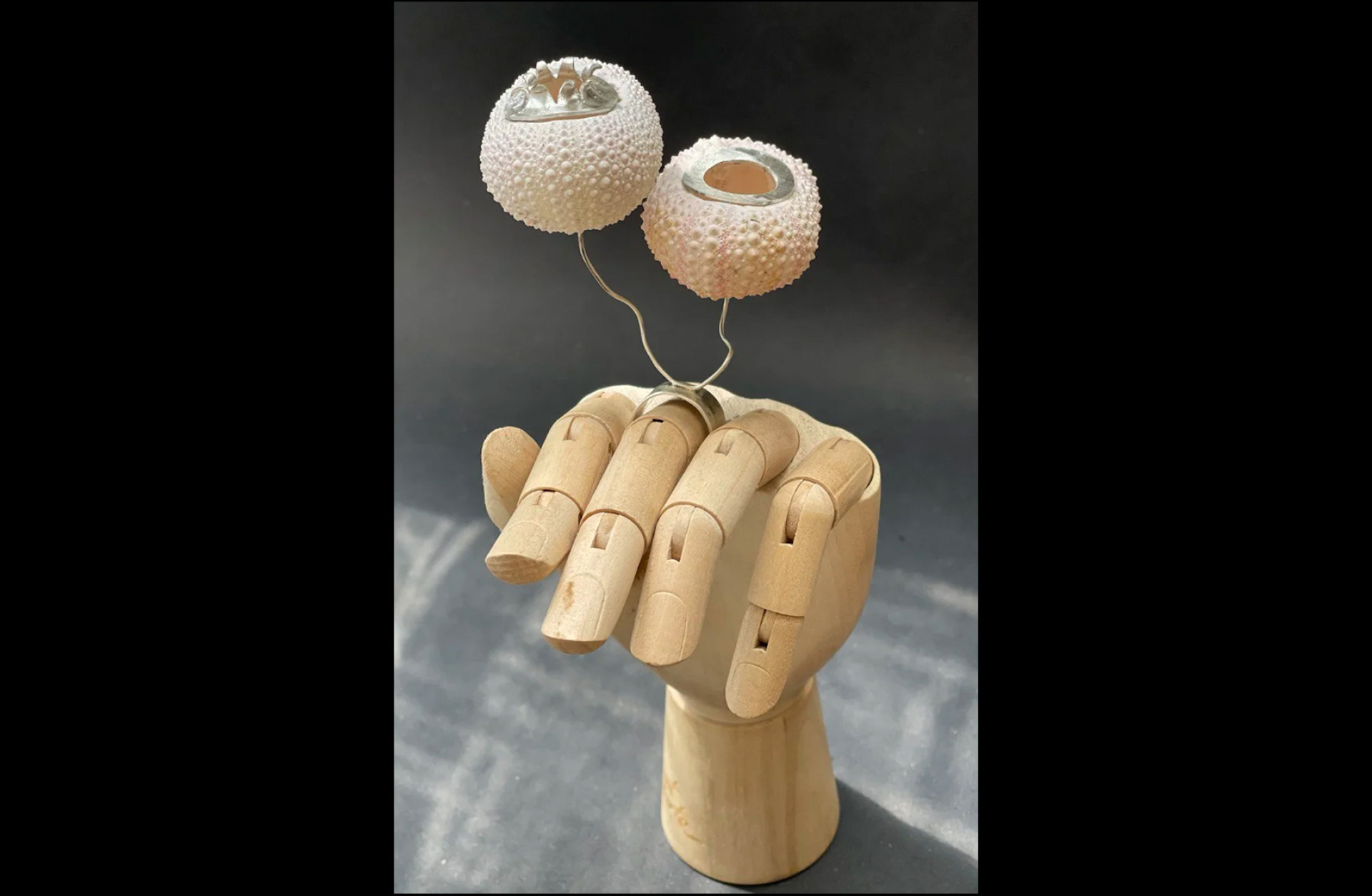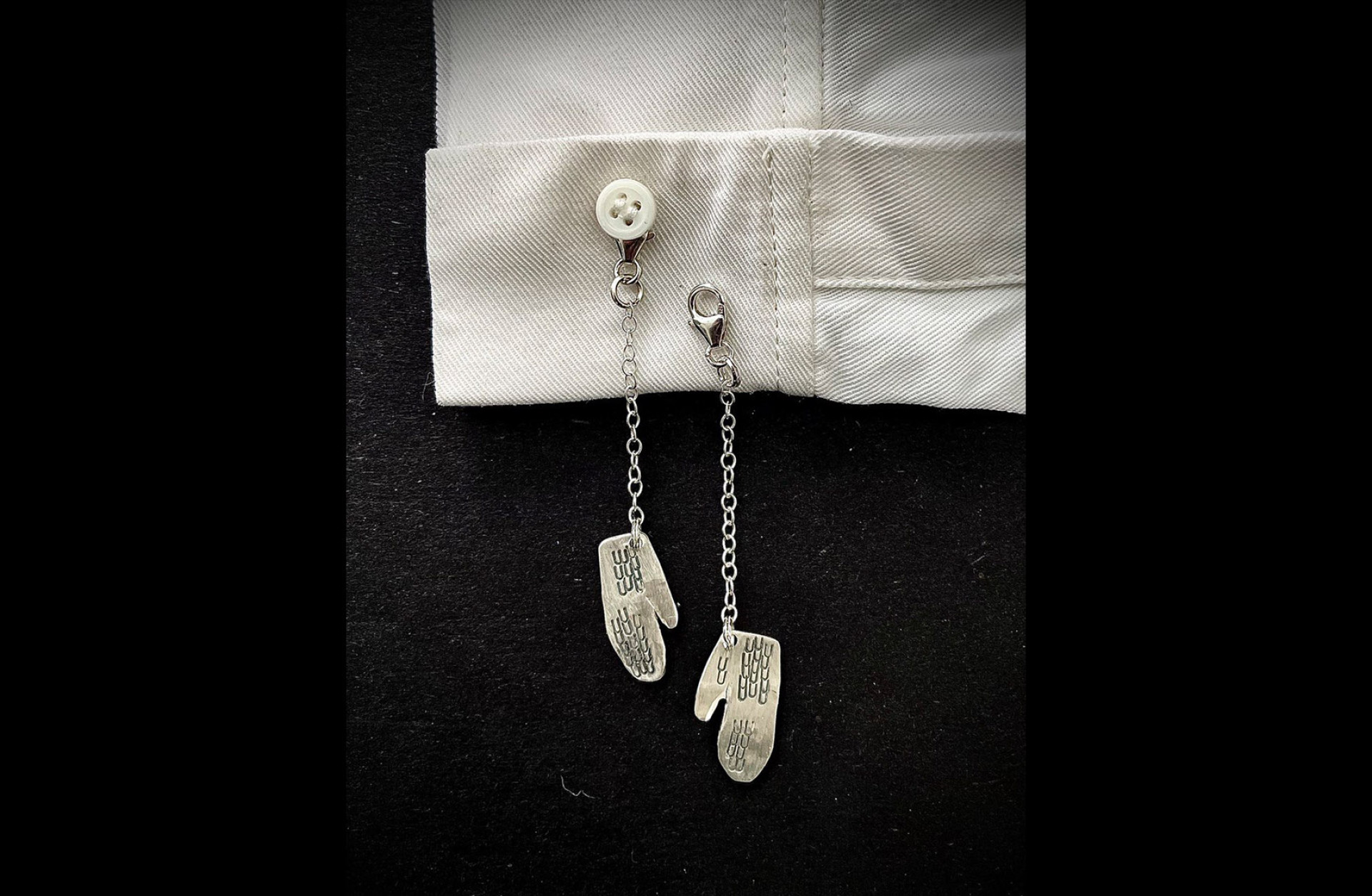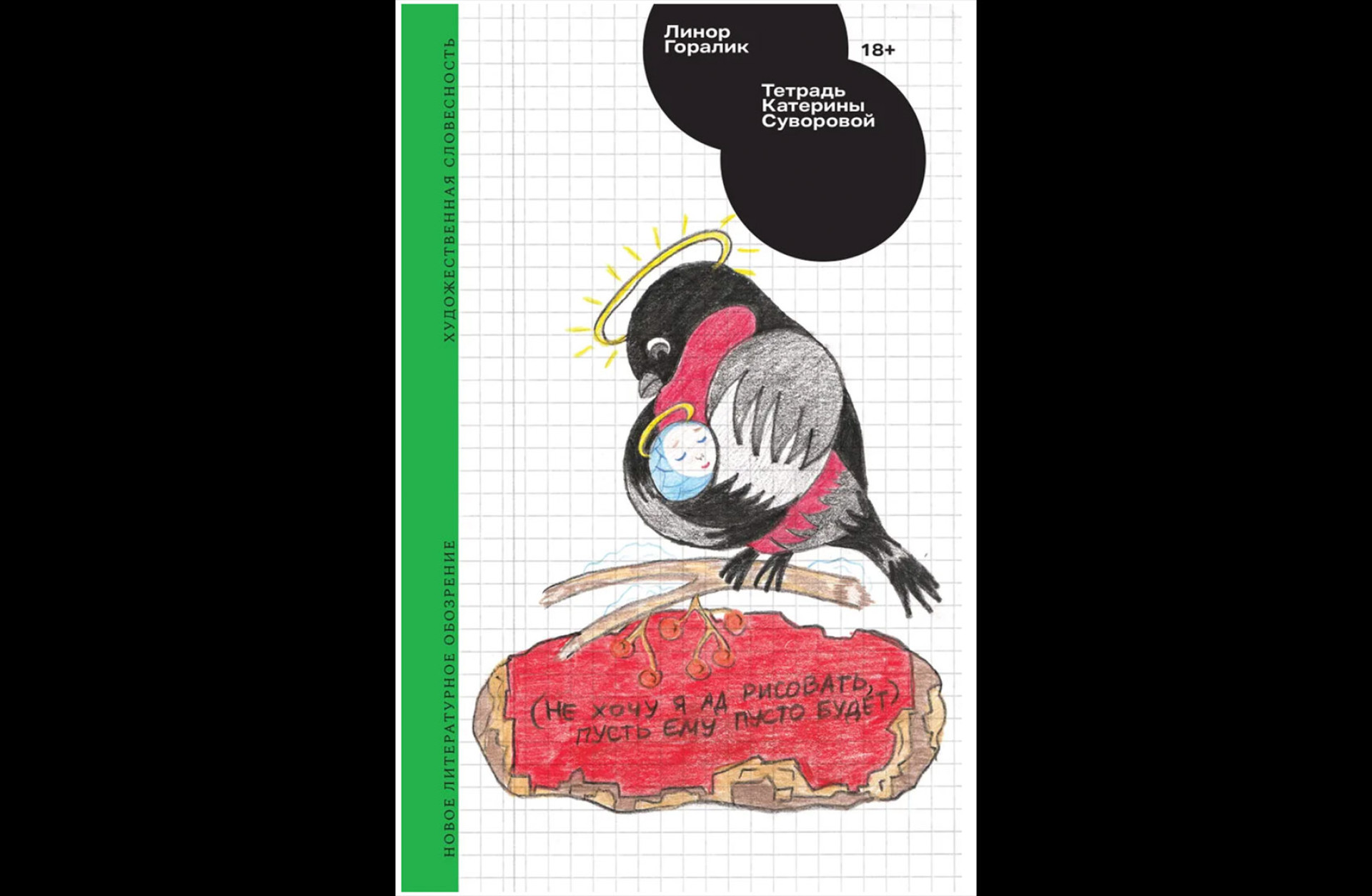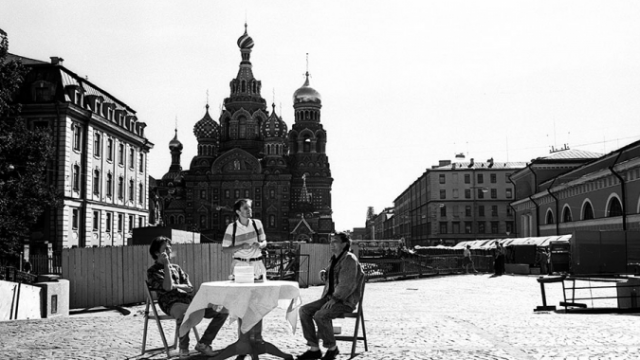For prominent writer and artist Linor Goralik, Putin’s full-scale invasion of her native Ukraine has changed life “forever” — but it has not broken her. Since the start of the war, Goralik, who writes in Russian and Hebrew, has launched a digital art magazine and a news channel for teenagers, written two novels, produced a series of icons and discovered her talent as a jeweler.
Goralik spoke to The Moscow Times about how she manages to combine all this while continuing to publish in Russia, where she has been declared a “foreign agent.”
MT: For every person in Ukraine and many people in Russia, life is now measured in terms of ‘before’ and ‘after’ February 24, 2022. You were born in Ukraine, live in Israel and write in Russian and Hebrew. Did you also experience this divide?
LG: Absolutely. February 24 changed my life completely. And it’s quite difficult for me to explain this to many Israelis. It’s hard to explain why you, an Israeli woman living in Israel, respond this way to events happening to two other countries. But of course it changed my life forever.
I follow you on social media. Since the beginning of Putin’s invasion of Ukraine, you have only posted art and other work projects there, no personal photos or cat pictures. Why?
In no way do I think that this is what someone else should choose to do, but this is what I have decided for myself. I will now try to put what I have decided for myself in polite terms: my policy regarding my own statements has become ‘Less talk, more work.’
For me, the most poignant of your pieces that came after February 24 are the ‘Five Icons About War.’ How were they born and will there be a sequel?
Thank you very much. They emerged after we found out about Mariupol, about Bucha, about what is happening in Kupiansk. These were very difficult pieces for me. I don’t think they can have any sequels. They were five pieces done in a few days. Very quickly. I thought about them for a long time and then did them quickly. I can’t really imagine being able to step into the same river again. I still have very complicated feelings about these pieces. They bring me a lot of pain. I’m glad I managed to do them, but I don't think I'll be able to get that close to [those feelings] again.
You make very unusual jewelry. Why jewelry? With both Ukraine and Israel at war, some might say that war is not a time for jewelry.
It’s just my job. It is work that brings me a lot of joy, but it is work. It’s harder for me to work as a marketer after February 24 for a number of reasons. Jewelry has proven to be a way to make a living. And I am terribly grateful to my customers for giving me that opportunity.
Yes, I see that you’re making more and more jewelry, which means it’s obviously selling well. Do you have an answer as to why?
I think the answer to that question should be sought from my customers. This is a story of trust, and I am very grateful for it.
It seems that your most ambitious project which you launched after the start of Russia’s full-scale invasion of Ukraine is the Resistance and Opposition Arts Review (ROAR), which has already published 13 online issues. How different is ROAR now from how you originally envisioned it?
Yes, quite a lot has changed. And a lot has changed just today, because five minutes before we met, issue No. 13 came out, and it’s not the same as issue No. 12. First of all, ROAR changed its name at some point. It was initially called Russian Opposition Arts Review. Now it’s called Resistance and Opposition Arts Review, because we publish materials in languages besides Russian.
From today [we will have] the “main” version, not the “Ukrainian/Russian” version, because we have decided that we are removing the restrictions on the original languages in which we are ready to publish materials. We are ready to publish contributions in any language, if they fit our mission and our theme. This is a scary decision, because what if they are languages that no one in the editorial office knows? But we decided that today, we have the opportunity to look for specialists who speak different languages, and we will manage somehow. We value the opportunity to work with very different languages, with very different authors, and it's very interesting and important for us to try.
When we started out, we didn’t know what we were getting into. For New Year’s Eve, I made silver bracelets for some of my friends and colleagues in the editorial office with the words “Всего-то пару номеров” (“Just a couple of issues”) on them as a gift. Because we had planned for just a couple of issues. We didn't think there’d be 13, and now we’re putting together a 14th. It’s awfully hard. It’s the easiest for me — all I do is work with authors and gather materials. The hard part is for my colleagues in the editorial department who then work with those materials. It’s a huge, incredibly difficult job. And they’re hanging in there. I don’t know how they do it. But we really didn’t expect it to go on for this long. I mean, we have a goal of closing. We’re all hoping that we’re about to close. But so far, it’s not working out.
By the way, how do you find contributors and how big is your team?
At ROAR, we’re all volunteers, as ROAR doesn’t have a sponsor. The ROAR team is scary big to me. Considering that we publish in different languages, there are translators, proofreaders, editors, a production team... I’m very afraid of forgetting someone, but I think I’ve listed the main teams. I think we reach the size of, I’m afraid to say it, 150 people. And that’s not counting the contributors.
Have you counted how many countries your contributors live in?
No, that doesn't make sense. Everywhere. We have a core group of authors — that is, regular contributors — and we have authors who appear in [one] issue, leave, come back to us after a few issues. There are new authors in every issue.
And it’s not like we don’t know who’s writing for us. I'm sure there are well-known writers that we don't recognize because they write under pseudonyms. There are very young writers who are clearly writing for the first time, making their first experiments with us. There’s a very diverse pool of authors. And it’s all terribly scary. It's terribly scary for me, as a person who works with authors, to miss something wonderful. My main fear is not to take weak material, that’s absolutely normal. But to miss something, not to recognize something strong, important, that’s what I’m always terribly afraid of.
Do a lot of contributors have to say no?
50/50. My feeling is 50/50.
They don’t get royalties either?
No, no, we don’t have a penny of money.
Are there any contributors you would like to recruit, but for one reason or another have not yet succeeded?
I haven’t thought about it. Of course, I’d like to attract any strong author I know. And I have a newsletter that I send once per issue, which is once every two months, to a circle of authors that I love and appreciate. Some of them write to us, and some of them don’t write to us. But I don’t give up hope.
When the war started, you told me about your wonderful idea: to launch a news channel for teenagers aged 12-14, which would tell them the truth about what is happening in Russia in accessible language. I am glad and proud of you that despite all the problems, you managed to create Novosti-26 and continue to develop it. It is a great project! But it clearly has fewer subscribers than it deserves. What’s missing?
Hands and money. We have a wonderful sponsor who gives us a small amount of money that allows me to pay the journalists’ salaries and get a tiny, believe me, tiny, salary and support this channel a little bit. But we don’t have enough money to promote it at all.
We have just hired another journalist, and with that, our options are completely exhausted. I’m not getting paid. It’s absolutely fine, it doesn’t bother me at all. But we have no money for promotion.
We will now look for a person who will receive their salary from my personal funds to promote Novosti-26, but not only this project. So we can consider him a volunteer for this project. I’m telling it like it is, so there won't be any misunderstandings. I think this is very important.
We have a little over 5,000 people in the [Telegram] channel right now. I think we have incredible room to grow. I know how, but we need [additional] hands. We need money for hands — not money to put into advertising. I know how to play low-budget marketing, that's my specialty: when you're not spending money, you're spending man-hours. We've now taken on another journalist. I have a lot of faith in this person and in our team in general. I really want it to work, because the mission we have taken on seems important to me.
You are a ‘foreign agent’ in Russia. And — miraculously — you continue to publish there. Your latest work, ‘The Notebook of Katerina Suvorova,’ was published by NLO in May 2024. How do you manage to do that?
Basically, NLO are heroes, they took and published a book by a ‘foreign agent.’ They are my idols.
May I ask: Do they pay you royalties?
Absolutely, NLO pays me royalties.
So basically, everything is pretty much like normal life. Except for the cover.
(laughs) Yes, except for the cover labeled ‘foreign agent.’
Current Russian legislation restricting freedom of speech and opinion is so flexible that those who write in Russia — journalists and, I suppose, writers too — are forced to self-censor: you can’t write about this person for sure, and this subject is not yet banned, but it's also borderline, so it’s better not to touch it either... Do you have this problem when you write in Russian for a Russian magazine or publishing house?
It’s strictly the other way around. My last two novels were written after the start of the full-scale invasion. One novel is called ‘Bobo,’ which is all about the war. I just didn’t publish it, so as not to screw the publisher — I just put it on my website.
And there was no question of self-censorship there. It was the same with ‘Katerina.’ I wrote it, and then I asked NLO how they viewed [publishing it]. They said, ‘Let's do it.’ And we published it. And that was it. If NLO had said, ‘It's dangerous for us,’ I would have given it to someone who wasn’t in Russia. But it’s just that I have a long-standing love affair with NLO, and I couldn’t not ask them.
This ‘foreign agent’ book of yours, is it selling better or worse compared to your previous books?
I don’t know at all, because I have a weird idiosyncrasy. The moment a book is published, I lose all interest in it. We break up. My relationship with it is over, my unconscious apparently thinks, and there's nothing more we can do for each other.
So you don't follow circulation, sales, this doesn’t interest you anymore?
No. To the point where I don't open the author’s copies. I give one to my parents, my friends sort out the rest, and that’s it. I don’t have my books.
There is another war in your life and your work that began with the Hamas attack on October 7, 2023. Do you see anything in common between the Hamas regime and the Putin regime?
On the one hand, of course. The desire for total control. You can’t take that away. Militarization. [The desire for] violence. On the other hand, I think these [comparisons] are unproductive. It simplifies both conversations. They each deserve a separate discussion.
You’re a writer, an artist, a teacher, a jeweler, a marketer. I’m not going to ask you where you find time for all of that, but how do you prioritize things?
You list these things, and I don’t feel like any of those guys. I feel like the kind of private citizen who gets up at 4 a.m., wakes up in physical pain, and does something all the time to keep busy. So it’s very difficult for me to have a conversation about priorities.
I try to be a good person. To be a person who is close to my loved ones.
As for all the rest — there’s something to do every day to make sure that I don’t let someone down.
If there was a magical world where you could feel no pain and feel no fatigue and do what you want for 24 hours, it would be texts and pictures. But there’s duty, and there’s work, and there’s responsibilities, and you’re trying to juggle balls and not drop anything.
Yes, I didn’t mention another hypostasis of yours — the fact that you are a boss, a patron and an entrepreneur. Do you feel responsible for your people? Does this weigh on you?
I do jewelry alone, I don't have an apprentice. I do everything with my hands, here is the jewelry machine.
With respect to the ROAR team, I don’t feel like a boss, I feel like a person who is being done a favor. The team has come together and they’re doing me a favor by doing projects with me.
I feel unimaginable gratitude and I’m very afraid that everyone will get bored and run away. It’s such a trap. I’m afraid of letting everyone down all the time, screwing up deadlines. My job is to help them do their job. And in that sense, I’m like, ‘Give and take’ all the time.
My job, both at ROAR and at Novosti-26, is to not delay, to not take people out of the workflow. That’s what I mean when I say that there are responsibilities all the time not to let anybody down. I mean duties to jewelry customers, I mean duties even with texts. Waiting for editing, waiting for proofreading with pictures, waiting for work to be sent to exhibitions, marketing clients waiting for documents and developments on time. There are people you work with, and you keep your commitments to them.
And if there was a magical world where rabbits poop butterflies, I would only draw and write texts. And I’d go crazy fast. So it’s really good that I’m busy with different things. I can’t live in a world [only] with texts and pictures, I would lose my mind there fast.
My last question is about your ‘Strange Shop Mazeze.’ By the way, does ‘Mazeze’ mean something?
Yes, in Hebrew, it means “What is it?” Kids will point to unfamiliar objects and say, “Ma ze ze?”
I understand you personally sell your artwork there?
The shop is physically no longer there, it was there for a little while. My colleague Marusya helps me. She does all the logistics, all the packaging, all the correspondence with clients. I just sit and do things. Also, if I screw something up on a deadline, I personally write to clients and apologize.
What’s the best compliment you’ve heard from a client?
I have rings that say ‘Решено’ (‘Resolved’). These are rings for people who have made a difficult decision or are trying to make a decision. We had a person write to us who was helped by this ring to move from country to country. Very scary, but very, very valuable.
Linor Goralik’s “Five Icons About War” will be exhibited at “Artists Against the Kremlin,” a showcase of anti-war, anti-authoritarianism art presented by The Moscow Times, All Rights Reversed gallery and De Balie in Amsterdam from Aug. 3 to Sept. 3.
A Message from The Moscow Times:
Dear readers,
We are facing unprecedented challenges. Russia's Prosecutor General's Office has designated The Moscow Times as an "undesirable" organization, criminalizing our work and putting our staff at risk of prosecution. This follows our earlier unjust labeling as a "foreign agent."
These actions are direct attempts to silence independent journalism in Russia. The authorities claim our work "discredits the decisions of the Russian leadership." We see things differently: we strive to provide accurate, unbiased reporting on Russia.
We, the journalists of The Moscow Times, refuse to be silenced. But to continue our work, we need your help.
Your support, no matter how small, makes a world of difference. If you can, please support us monthly starting from just $2. It's quick to set up, and every contribution makes a significant impact.
By supporting The Moscow Times, you're defending open, independent journalism in the face of repression. Thank you for standing with us.
Remind me later.



